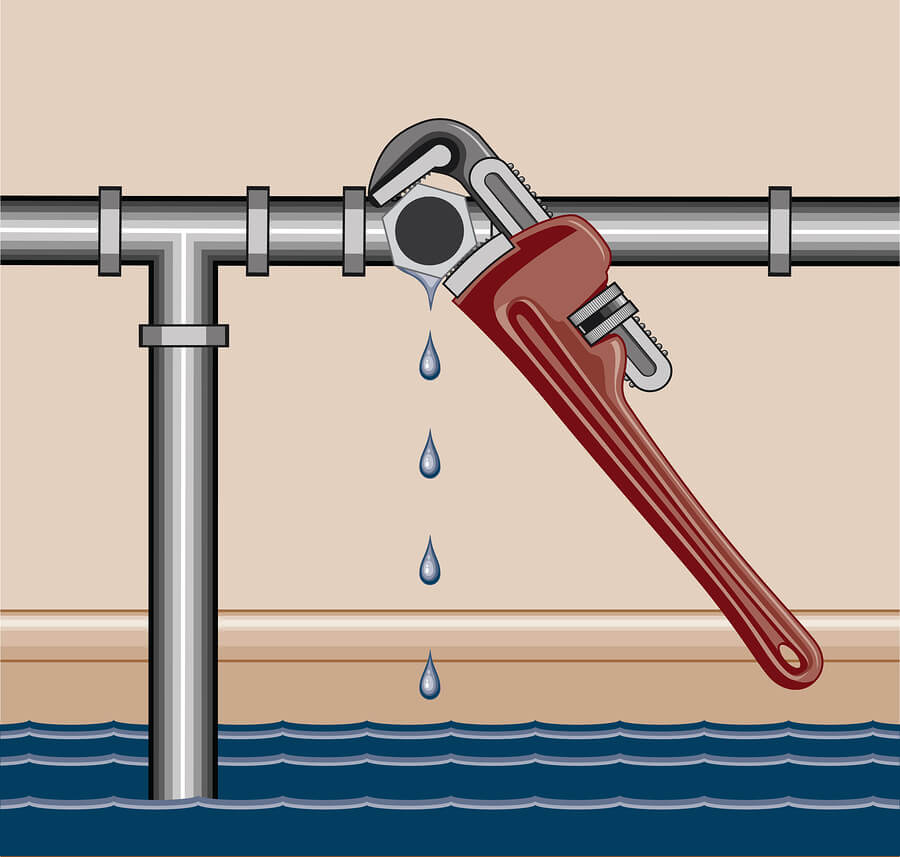Nearly everybody will have his or her own perception involving Common Water Leaks In House.

Leakages not just trigger waste of water however can also create unnecessary damages to your home and promote undesirable organic development. By looking and also comprehending for everyday situations that create leaks, you can shield your house from future leaks and also unneeded damage.
Trespassing roots
Most water leakages start outside your home rather than inside it. If you see an abrupt reduction in water stress, state in your faucet, take some time to head out as well as analyze your yard. You may notice damp spots or sinkholes in your lawn, which might mean that tree origins are invading water lines creating water to seep out. You can have your plumber look for intrusion, especially if you have trees or shrubs near your residential or commercial property.
Rusty water systems
As time goes by, your plumbing system ages and deterioration such as rust may begin eating away the pipelines. This may be the cause of discoloration or bending on your water pipes. This requires an inspection with your plumber promptly. If our plumbing system is old, consider replacing the pipelines given that they are at a greater danger of deterioration than the newer designs.
Defective Pipe Joints
The point at which your pipelines link is regularly the weakest web link in the waterline. Pipeline joints can deteriorate in time, leading to water leakages. The bulk of pipeline joints are not conveniently noticeable. If you have noisy pipelines that make ticking or banging sounds, specifically when the warm water is activated, your pipeline joints are possibly under a great deal of stress. It is advisable to have your plumber check your system yearly.
Instant temperature changes.
Severe temperature level adjustments in our pipes can cause them to expand and also contract suddenly. This growth and also contraction might trigger cracks in the pipelines, particularly if the temperature are listed below freezing.
Poor Water Connectors
At times, a leakage can be caused by loosened tubes as well as pipes that provide your appliances. Most of the time, changing is what triggers the loose water Links. You might locate in the case of a cleaning device, a tube may spring a leak as a result of shaking throughout the spin cycle. In case of a water connections leakage, you may see water running straight from the supply line or pools around your devices.
Blocked Drains
Obstructed drains pipes could be bothersome as well as inconveniencing, however they can sometimes end up creating an overflow leading to rupture pipelines. Maintain removing any materials that may drop your drains that could block them to stay clear of such troubles.
All the above are sources of leakages however not all water leakages arise from plumbing leakages; some leakages could originate from roof covering leaks. All leaks must be fixed instantly to prevent water damage.
Leaks not only trigger waste of water yet can additionally cause unnecessary damage to your residence and promote unwanted organic growth. By looking as well as understanding for everyday circumstances that create leaks, you can safeguard your house from future leakages and unnecessary damage. Today, we will look at six leak causes that may be triggering your pipelines to leak.
At times, a leakage can be triggered by loosened pipes as well as pipes that provide your devices. In instance of a water links leakage, you may discover water running directly from the supply line or puddles around your home appliances.
How To Check For Water Leak In Your Home
How To Check for Leaks
The average household's leaks can account for nearly 10,000 gallons of water wasted every year and ten percent of homes have leaks that waste 90 gallons or more per day. Common types of leaks found in the home are worn toilet flappers, dripping faucets, and other leaking valves. These types of leaks are often easy to fix, requiring only a few tools and hardware that can pay for themselves in water savings. Fixing easily corrected household water leaks can save homeowners about 10 percent on their water bills.
To check for leaks in your home, you first need to determine whether you're wasting water and then identify the source of the leak. Here are some tips for finding leaks:
Take a look at your water usage during a colder month, such as January or February. If a family of four exceeds 12,000 gallons per month, there are serious leaks.
Check your water meter before and after a two-hour period when no water is being used. If the meter changes at all, you probably have a leak.
Identify toilet leaks by placing a drop of food coloring in the toilet tank. If any color shows up in the bowl after 10 minutes, you have a leak. (Be sure to flush immediately after the experiment to avoid staining the tank.)
Examine faucet gaskets and pipe fittings for any water on the outside of the pipe to check for surface leaks.
Undetected water leaks can happen without the home or business owner even realizing. If you suspect a water leak, but not able to find the source. It is time to contact a professional water leak detection service, The Leak Doctor.
How To Find a Water Leak In Your Home
https://www.leakdoctor.com/blog/How-To-Check-For-Water-Leak-In-Your-Home_AE197.html

Do you enjoy reading up on Common Water Leaks In House? Post feedback directly below. We would be pleased to listen to your opinion about this piece. We hope that you visit us again later on. In case you appreciated our blog entry please remember to share it. Bless you for your time. Come back soon.
Detail